BANKRUPTCY OVERVIEW
Unfortunately, people may find themselves in financial difficulties, sometimes even not of their own doing. When financial strains hit, it is important to have honest, objective advise about the choices. We are a debt relief agency. We help people file for bankruptcy relief under the Bankruptcy CodeFREQUENTLY ASKED QUESTIONS
Are there alternatives to Bankruptcy?
Yes. There are many. Often times, if you have only one or two big debts, but cannot manage to pay those, we can contact the creditor for a voluntary work out. Additionally, there are organizations such as financialhope.org and Consumer Credit Counselors who can work with your creditors in an attempt to make a repayment plan. You must choose these firms carefully because some demand prepayment whether they succeed or not. A good not for profit credit counselor is often times the best place to start.
How much will my bankruptcy cost?
The cost of a bankruptcy will vary, both as to its complexity and to its type. A business bankruptcy can be very expensive. A relatively straight forward Chapter 7 Bankruptcy usually is the least expensive bankruptcy, depending on complexity. A Chapter 13 Bankruptcy is somewhat more expensive because there is extra work involved and stretches over a longer period of time.
Are there different types of Bankruptcy?
Yes. There are many types of bankruptcies, ranging from cities and towns to big business to farmers. For individuals, the most common bankruptcies are a Chapter 7 (fresh start or liquidation bankruptcy), or a Chapter 13 (wage earner’s plan or repayment plan). Which type of those two bankruptcies is appropriate for you is not a simple answer, and must be made only after a thorough evaluation of your situation.
When will creditors stop calling me?
Can I use my credit cards?
NO. If you use your credit card(s) within 90 days of filing your bankruptcy, the law allows the credit card company to assume you knew you were going to file. The court, in most cases, will allow the credit card company to recoup any charges within 90 days of filing.
When will my garnishment stop?
Once a garnishment issues, usually against your wages or perhaps a bank account, it cannot be stopped until the bankruptcy is actually filed with the court system. Therefore, it is important to move as quickly as possible in those situations to provide the relief that you seek. Often, that is complicated by the fact that the money necessary to file the bankruptcy is tied up by garnishments. Thus, it’s important to be aware of the possibility of an upcoming garnishment well in advance.
Can I keep my house and car?
In a Chapter 7 you can keep your house and car as long as you are current in the payments. Usually the creditor will not agree to let you do so if you are behind in the payments. If you are behind in the payments, you can save your home and/or car in a Chapter 13 Bankruptcy.
Can I sell things?
Generally, yes. But anything you sell must be disclosed in your petition. As long as it is sold for fair market value, you shouldn’t have any problems. If you sell anything for a larger dollar amount, expect to have to account for what happened to those funds.
Can I withdraw money from the bank in order to “protect” it?
No. You can only protect $350.00 per person. That includes money in the bank and CASH.
Once I complete Bankruptcy, when will I have credit again?
This is a difficult question to answer. However, a good payment record of expenses after bankruptcy is the best way to begin, making sure rent is paid timely, utilities are paid on a current basis and any reaffirmed debt (such as a car or a house payment) is kept current. Generally, the better job you do of keeping current after the bankruptcy, the quicker any future creditor will look positively on your request for credit.
Will I lose my tax refund?
In a Chapter 7, you will have to pay the trustee your tax refund for one year. If you file at the beginning of a year, you will have to pay the refund you just received or are about to receive. If you file at the end of the year (usually after June 1) then the trustee can make you pay the refund you will receive the following year. This is done on a pro rata basis. So, if it is half way through the year when you file, you will lose one-half of your refund.
In either case, any refund received because of earned income credit for your children is exempt and the trustee cannot take it. In a Chapter 13, generally, you will have to pay the trustee any refund you receive over $500.00 every year you are in a Chapter 13 bankruptcy.
